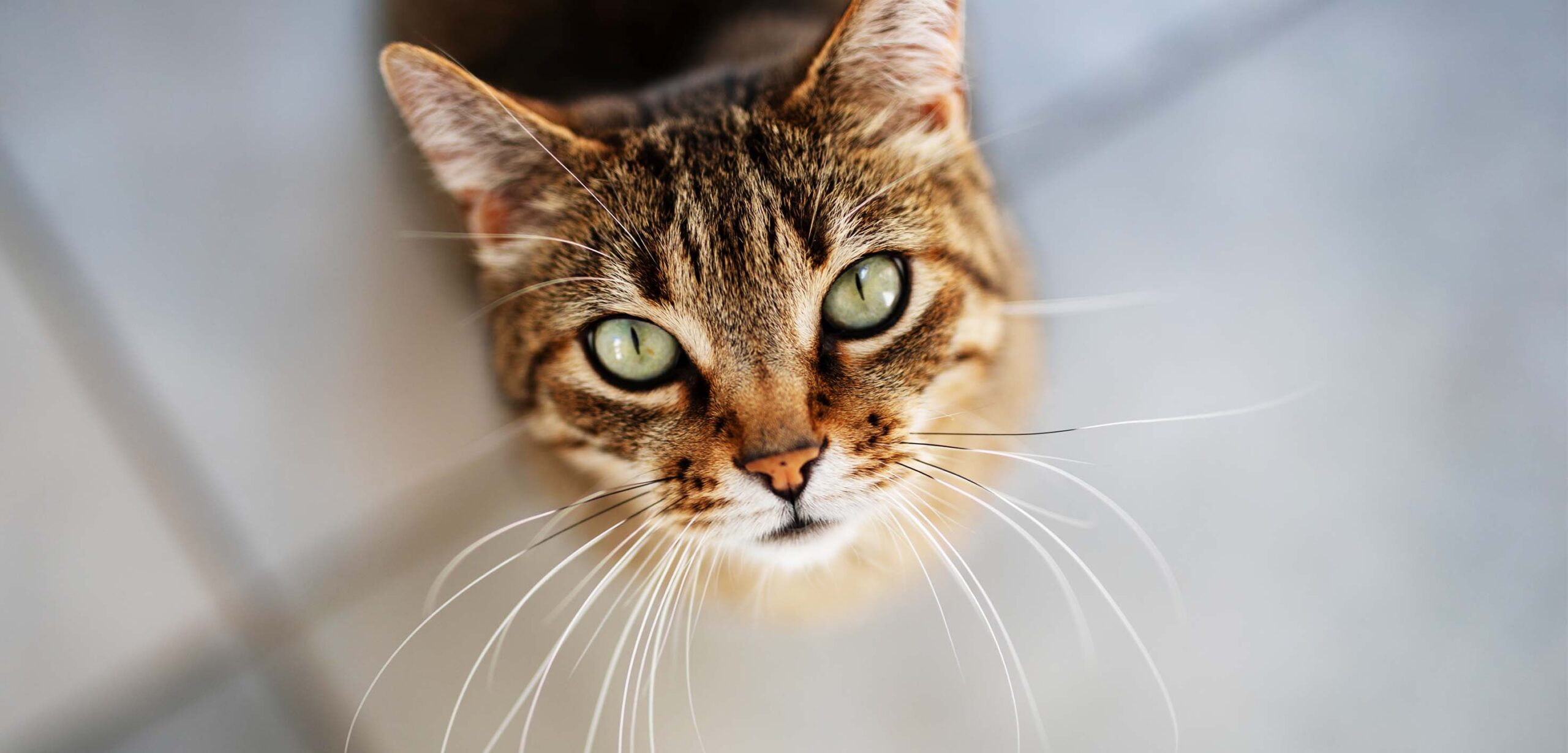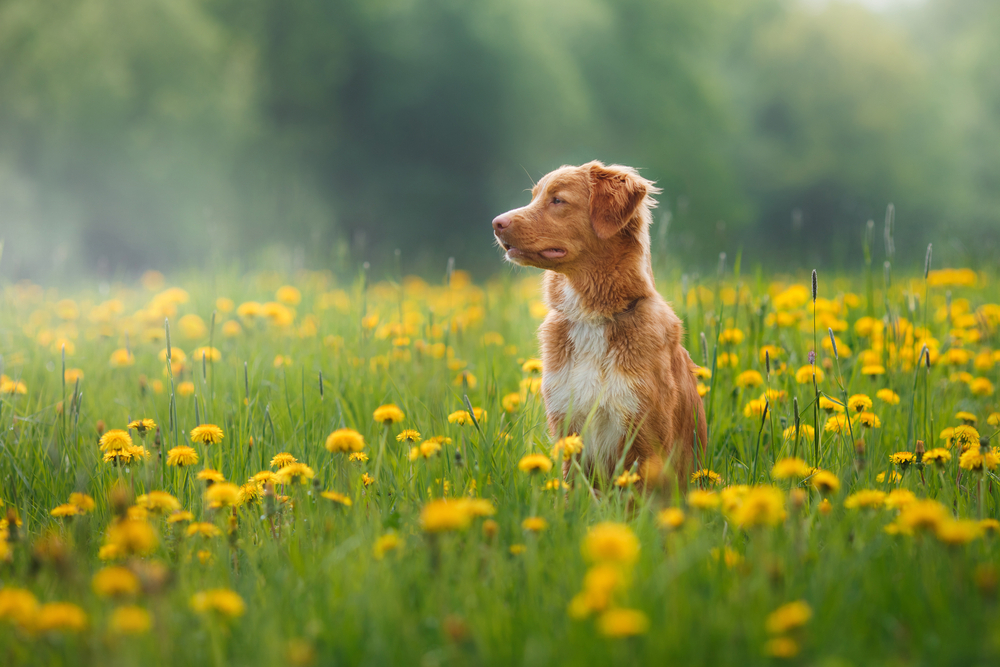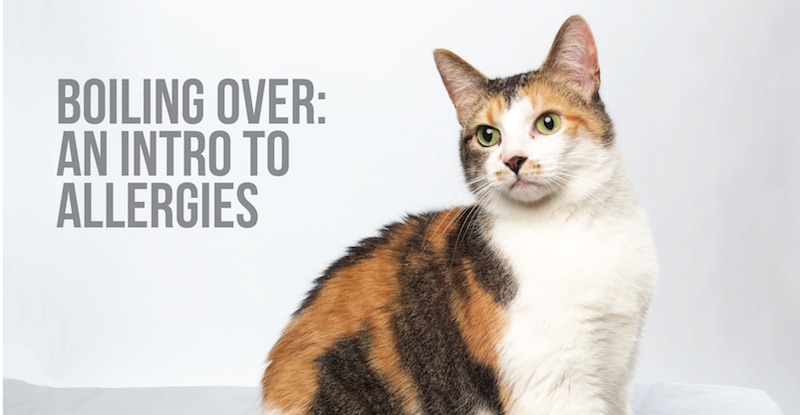
As spring approaches, some pet parents will grow increasingly anxious about their pet’s comfort level. Dogs and cats can experience allergies just as humans can (and yes, it can be equally as miserable). Animals can develop allergies to a variety of allergens, whether from food, inhalants, or contact. Often times, an allergic reaction in animals will manifest as itchy skin, swelling, weepy lesions, panting, irritable bowel, or restlessness.
Allergy Misconception #1: The symptoms of an allergic reaction are directly caused by the allergen.
While an allergen does set off the chain of events that eventually give way to the symptoms of an allergic reaction, it’s actually not the main culprit. Allergic reactions are simply an overreaction (or hypersensitive reaction) of the immune system. Itchy skin, panting, and swelling all result from the animal’s bodily defenses taking up arms against whatever foreign particle has shown up without an invitation. The immune system has overdramatized the situation and the symptoms are a consequence of that over-dramatization.
What's happening to animals?
Essentially the allergic animal’s body sees certain things—be it food, inhalants, or daily contacts—as threatening (when really, they aren’t the least bit harmful) and conditions itself to react as it would to any actually harmful intruder. The body is fighting off pollen particles the same way it would fight off flu particles, but unlike flu particles, allergens don’t put up a fight. So the body ends up in a fight against itself.
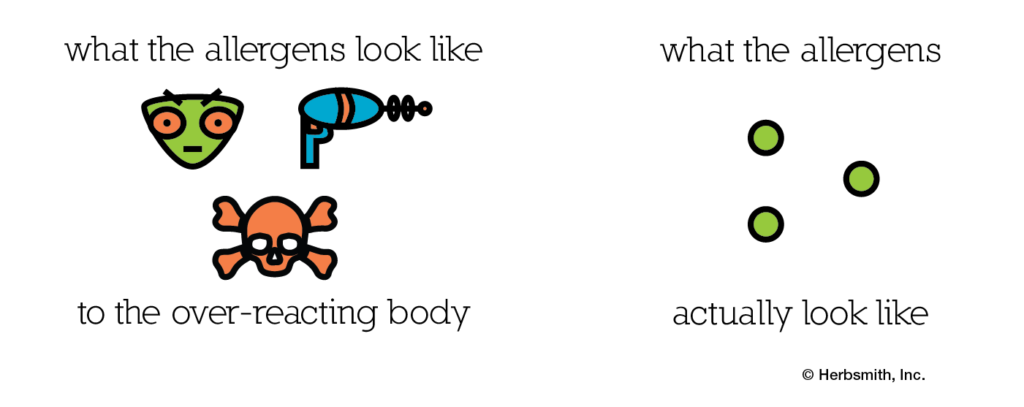
The Boiling Pot
The liver is the root cause of allergies: it should be pumping a smooth (and equal) flow of heat and water throughout the body. However, when that flow becomes stagnant or blocked, heat and inflammation accumulate in the body. In some dogs, this heat and inflammation will flare in the gut, producing stomach problems. Or, it may arise in the bladder, resulting in recurring bladder infections. In dogs with skin allergies, the heat and inflammation move to the surface, causing itchy, greasy skin.
Dr. Chris Bessent, our fearless leader, founder, and holistic veterinarian, compares the animal body to a gently simmering pot of water. When the pot begins to boil, it’s the equivalent of an allergic reaction. As the “pot” boils, the vital fluids in the dog’s body evaporate and phlegm accumulates (which is what causes an allergic dog’s coat to be greasy, gooey, or stinky). “In order to stop the boiling, you can either turn down the heat or add more water to the pot.”

Stepping out of the boiling pot reference (because obviously pouring cold water over an allergic animal will not actually help them), let’s turn our attention to what “adding water” and “lessening heat” actually means for our pets. By adding cooling foods and herbs to the overheating body, you can naturally decrease the excessive heat your allergic animal is experiencing. Then, supplementing with some tonifying herbs can help replenish your pet’s fluids faster, effectively encouraging the liver to return to its balanced state: pumping even amounts of water and heat throughout.
Holistic Thought:
In Eastern medicine, the flow of the liver is referred to as Qi (pronounced “chee”) and is said to be the animal’s life energy. When this flow is smooth and even, the animal will enjoy good health. A healthy animal should have the perfect balance of two forces in his body: Yin (fluids) and Yang (heat). So, explaining the boiling pot theory in terms of Eastern medicine, a stagnant liver Qi turns up the Yang (heat) in the body, which in turn burns off the Yin (fluids): an imbalance that gives way to phlegm (boiling over), causing a greasy coat and itchy skin.
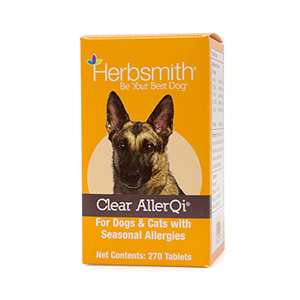
Addressing Allergies at the Root
Our Clear AllerQi is specifically formulated to address the underlying disharmonies that can give way to seasonal allergies. The herbs included cool the skin and harmonize the body’s defenses to help support normal functions. By maintaining healthy skin and normal histamine levels and supporting the normal detoxification processes, Clear AllerQi soothes skin-related issues associated with seasonal allergies.

